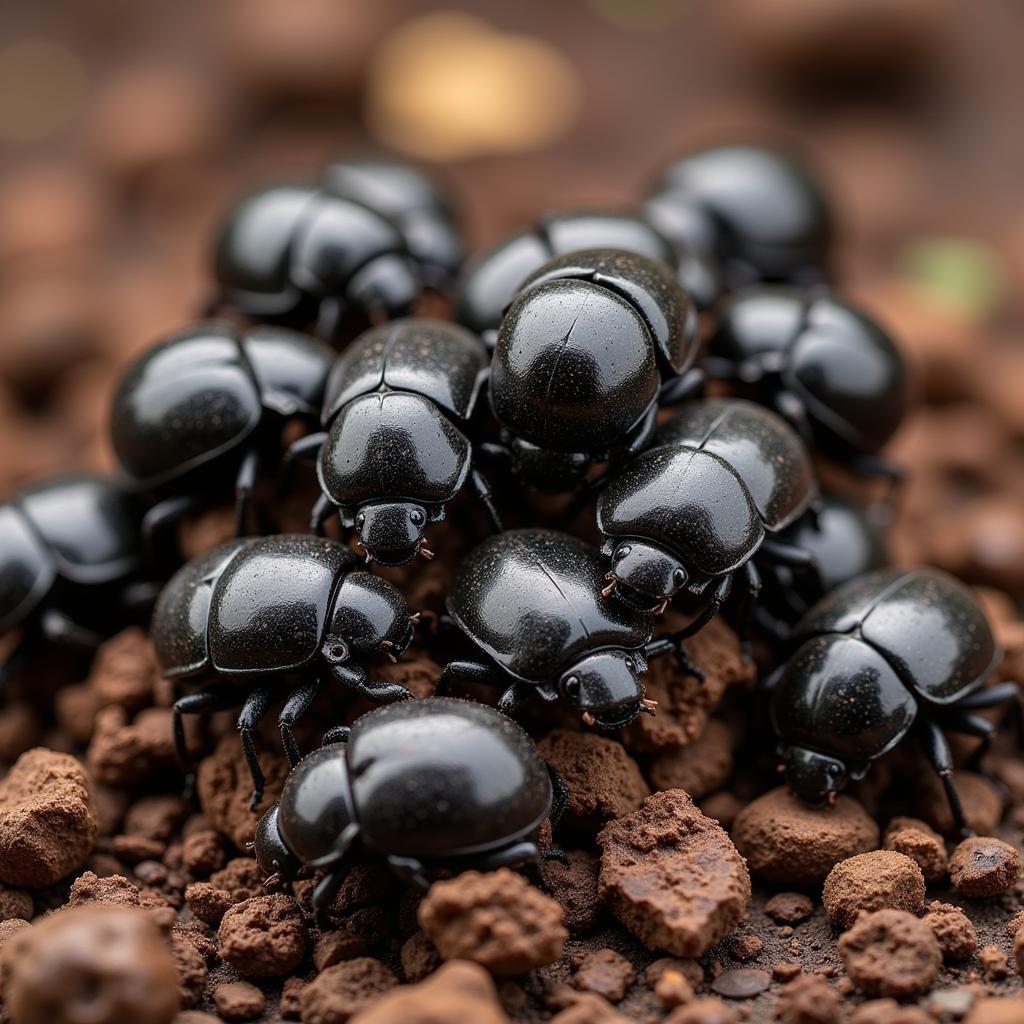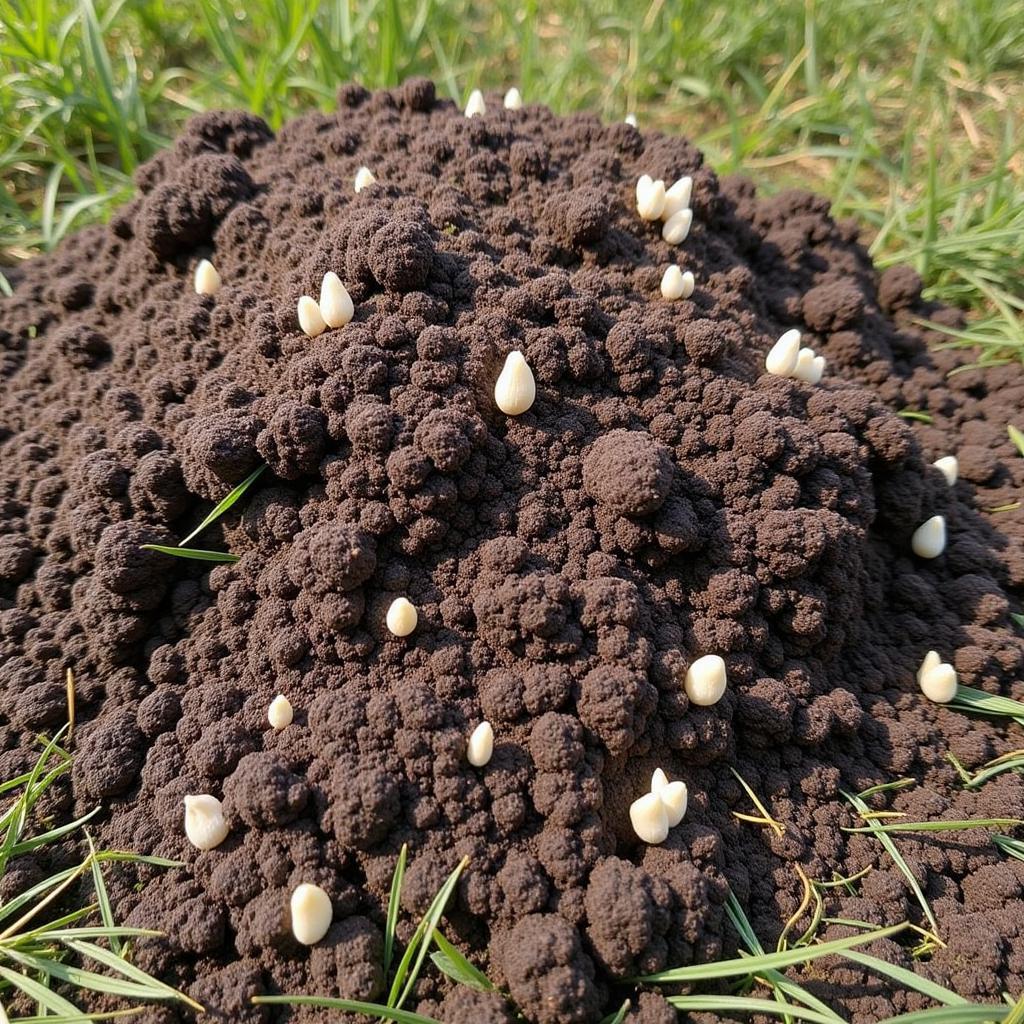The world of equestrian care is full of time-honored practices, but sometimes those old adages aren’t quite what they seem. One such example is the idea of a “Horse Dung Sea Urchin.” You might have heard whispers of this strange creature, said to dwell in pastures and fields frequented by horses. But before you start picturing a spiky, manure-dwelling sea creature roaming your horse’s grazing grounds, let’s dive into the truth behind this intriguing term.
Debunking the Myth of the “Horse Dung Sea Urchin”
Let’s set the record straight: there’s no such thing as a “horse dung sea urchin.” This term is a colloquialism, likely used to describe something found in horse manure that vaguely resembles a sea urchin in appearance.
 Horse Dung Beetles
Horse Dung Beetles
What People Might Be Mistaking for “Horse Dung Sea Urchins”
So, if there’s no such thing as a “horse dung sea urchin,” what are people actually seeing? Here are a few possibilities:
- Dung Beetles: These hardworking insects play a vital role in breaking down manure. Some dung beetles have round, sturdy bodies that might resemble a sea urchin, especially from a distance.
- Seed Pods: Certain types of seed pods, particularly those with spiky or textured exteriors, might be mistaken for something unusual when mixed in with horse droppings.
- Fungal Growths: Horse manure can host a variety of fungi, some of which produce fruiting bodies that could be misidentified as something more exotic.
 Horse Manure with Fungus
Horse Manure with Fungus
The Importance of Observation and Accurate Information
The “horse dung sea urchin” myth underscores the importance of accurate information in horse care. While this particular example is harmless, misinterpreting signs or relying on folklore can sometimes have unintended consequences for your horse’s well-being.
Here’s why sticking to reliable sources and expert advice is crucial:
- Effective Horse Care: Accurate information ensures you’re providing your horse with the best possible care, from nutrition to health management.
- Preventing Misinformation: Relying on myths and rumors can lead to ineffective or even harmful practices.
- Building a Strong Foundation of Knowledge: A solid understanding of equine health and management helps you make informed decisions for your horse.
When in Doubt, Consult the Experts
If you ever encounter something unusual in your horse’s environment or have questions about their care, don’t hesitate to reach out to a veterinarian or qualified equine professional. These experts can provide accurate information and guidance tailored to your horse’s specific needs.